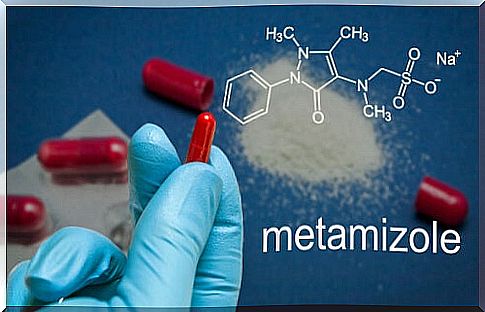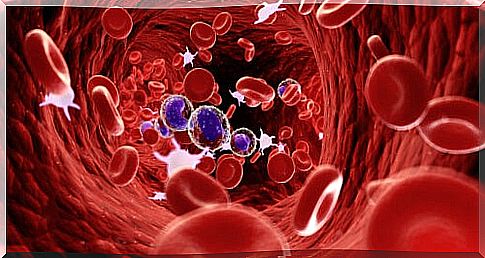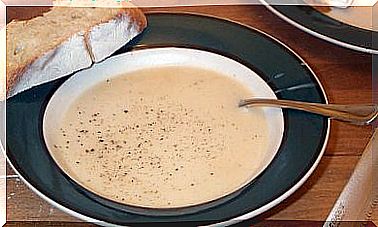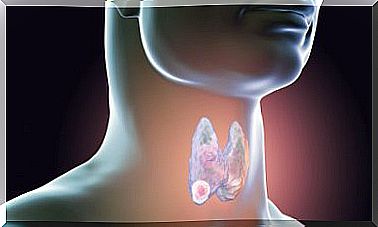Is Nolotil An Anti-inflammatory? What Is It Indicated For?
Nolotil has indications and pharmacological actions, such as the treatment of pain or fever. The active ingredient in this brand of medicine is metamizole, which belongs to the pyrazolone family, and can be in the form of metamizole sodium or magnesium.
This compound was synthesized in 1920, but it was not until 1922 that it was first introduced on the market under the Novalgin brand in Germany. It was in many countries without restrictions until its toxic effects were discovered, such as agranulocytosis or neutropenia, a blood disease that reduces the body’s ability to cope with infections and can also be fatal.
Today, metamizole is marketed under numerous brand names throughout the world, such as Nolotil, although it is also sold under a generic name. Next, we will see how it works, what it is used for and what effects it can have.
Nolotil: analgesic, antipyretic and spasmolytic

Nolotil acts as an analgesic because it calms pain, antipyretic because it lowers fever – especially high fever – and spasmolytic because it also softens visceral pain and that produced by muscle spasm.
However, its mechanism of action has not yet been understood, that is, how it works in our body to produce the above effects; although it is known that it can act both in the brain and in the rest of the body.
In addition, an important fact is that it is not technically an anti-inflammatory, although it is usually thought that it is. This is so because supratherapeutic doses are necessary, which can produce toxic effects.
How does it work in the body?
Nolotil acts on pain and fever thanks to its ability to reduce the synthesis of pro-inflammatory prostaglandins. This is achieved by inhibiting the activity of prostaglandin synthetase, which is an enzyme that catalyzes, as its name suggests, the synthesis of new prostaglandins.
These substances are lipidic compounds that participate in inflammatory responses, among numerous other processes. Likewise, they stimulate the nerve endings of pain and act in the production of fever.
However, Nolotil is also capable of inhibiting lipopolysaccharide-induced fever, which differentiates it from non-steroidal anti-inflammatory drugs or NSAIDs. On the other hand, its analgesic action is due to the fact that it is a non-selective inhibitor of the enzyme cyclooxygenase.
It also has a spasmolytic action, associated with the inhibition of intracellular calcium. This is useful in situations of nephritic or renal colic, and also in muscle spasms. Therefore, we can say that Nolotil is an anti-inflammatory, analgesic, antipyretic and spasmolytic.

What is it for?
Nolotil is an anti-inflammatory that is used in Spain on a massive scale and even in doses above those recommended. It is a fairly safe drug, although in other European countries it is not marketed due to the side effects that we will see later.
This drug is recommended for many indications, such as, among others, the following:
- Internal pain.
- Colic.
- Post-surgical pain.
- Cancer pain.
- Dental pain
- Fever that cannot be controlled by other antipyretic drugs.
Although in each case it is necessary to follow the dosage indicated by the doctor, as a guide, the indicated and recommended doses are usually the following:
- Orally : the usual dose is one 575 mg capsule, which can be administered up to 6 times a day every 4 to 6 hours.
- Parenterally : intramuscularly or slowly intravenously, a 2-gram ampoule is administered every 8 hours.
When indicated for cancer pain, half an ampoule is often used every 6-8 hours by mouth. However, this treatment cannot last more than 7 days.
Adverse reactions
Unlike other non-opioid analgesic drugs that act on prostacyclin synthesis, metamizole does not produce significant gastrointestinal effects. However, like all drugs, it does produce a series of adverse reactions that must be taken into account.

The main adverse effects of Nolotil are due to hypersensitivity reactions. Of these, the most important are alterations of blood cells, among which are the following:
- Leukopenia
- Agranulocytosis.
- Thrombocytopenia
On the other hand, Lyell and Stevens-Johnson syndrome can also be observed, as well as asthmatic attacks and critical drops in blood pressure that depend on the dose. The treated patient may also present with pain and / or local reactions and phlebitis.
Nolotil, a very common drug to use with caution
Nolotil, as we have said, is an analgesic, antipyretic, antispasmodic and in certain doses very effective anti-inflammatory. However, it should not be used without a prescription.
In case of detecting any unwanted reaction in the treatment with this drug, it is necessary to notify the doctor. If necessary, he will be the one to make changes in the dosage or change to another more suitable medicine.









